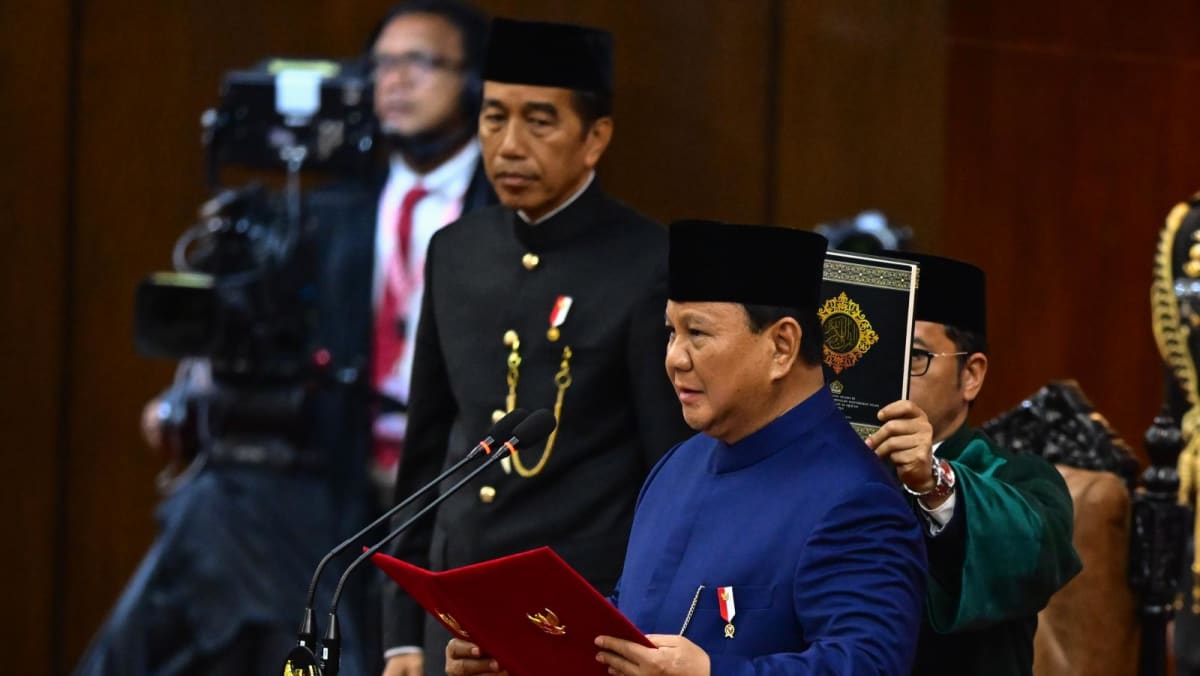The new president also rallied the nation to be brave alongside him in tackling challenges such as eradicating corruption, poverty as well as making Indonesia self-sufficient in areas such as energy.
“We have to become a nation that is brave and not afraid of challenges, obstacles, threats,” Mr Prabowo said to the cheers of lawmakers. “Our history is a history full of heroism, sacrifice, courage. A brave nation is one that makes the impossible possible.”
Mr Prabowo was sworn in as Indonesia’s eighth president at a ceremony attended by his predecessor Joko Widodo, who is Mr Gibran’s father, as well as Indonesia’s sixth president, Mr Susilo Bambang Yudhoyono.
But the country’s fifth president – who is also PDI-P chairwoman – Mdm Megawati Soekarnoputri was absent. According to Mr Ahmad Muzani, the head of the People’s Consultative Assembly (MPR) who led the inauguration ceremony, Mdm Megawati was absent because she caught the flu. Her daughter, house speaker Puan Maharani, represented her instead.
In his 50-minute speech, Mr Prabowo said the country needs an atmosphere of togetherness and unity. “We need collaboration and cooperation, not prolonged bickering. We need wise leaders,” said Mr Prabowo.
He cited himself and Mr Widodo as an example who were rivals during the 2014 and 2019 elections. But he added that they made peace with the rivalry and he even joined the latter’s Cabinet in 2019 as Defence Minister.
“Now I am the winner and I invite all parties to unite,” Mr Prabowo said as the outgoing President Jokowi looked on.
The former army general campaigned for the continuation of Mr Widodo’s programmes when he ran for the presidency, and his speech asserted that he would continue with some of his predecessor’s programmes.
Mr Prabowo said that the country must continue with downstreaming, which is a policy introduced by Mr Widodo, which refers to the process of producing added-value products locally from minerals instead of exporting raw minerals abroad that would be economically more profitable for Southeast Asia’s biggest economy.
